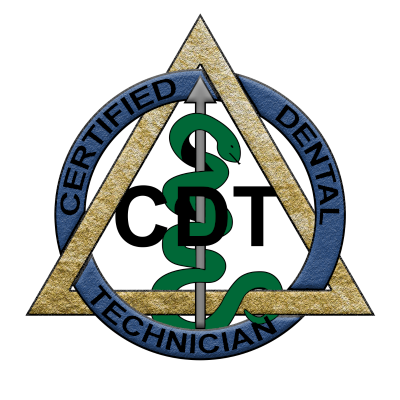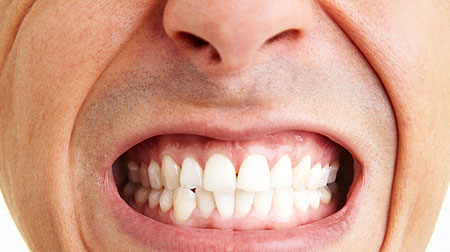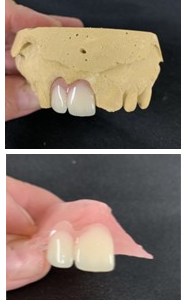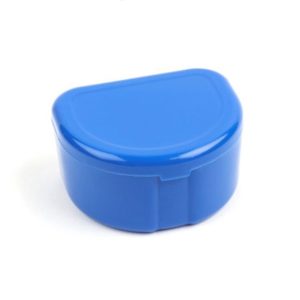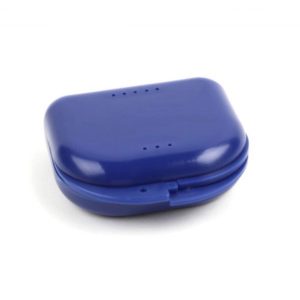Bruxism (teeth grinding)
According to the Cleveland Clinic – If you grind your teeth a lot, you may have bruxism. This condition can cause jaw pain and teeth problems. You may not even notice that you’re grinding your teeth during sleep. If you have bruxism symptoms, such as loose teeth, see your healthcare provider. Bruxism treatment is effective and may include a night guard for teeth grinding.
What is bruxism (teeth grinding)?
You probably grind your teeth or clench them once in a while. Occasionally grinding your teeth most likely won’t cause any harm.
But if you regularly grind your teeth, you may have a condition called bruxism. It can hurt your:
- Jaw muscles.
- Teeth.
- Temporomandibular joints (TMJs), which connect your jawbone to your skull and allow you to open and close your mouth.
What are the types of bruxism?
Bruxism can happen when you’re awake or asleep. The grinding action is the same, but awake and asleep bruxism are considered two separate conditions:
- Awake bruxism: You clench your jaw and grind your teeth during the day with this condition. It’s usually tied to emotional issues. Feeling anxious, stressed or angry can lead to teeth grinding. But so can concentrating on something. Awake bruxism often doesn’t need treatment, if you’re more likely to notice and stop. Stress management can help and learning ways to become aware can also help reduce the frequency.
- Sleep bruxism: You grind your teeth while asleep with this form, which may cause more harm. You may not get the help you need since you’re unaware it is happening. Another challenge with sleep bruxism is that people don’t realize how strong they’re clenching their jaw and teeth. They can use up to 250 pounds of force, causing jaw pain and teeth problems. Clenching can also lead to headaches.
Why is teeth grinding harmful?
Teeth grinding can cause several problems:
- Changes in how you look (aesthetic problems) and your facial profile.
- Fractured or loosened teeth.
- Harming your TMJs and jaw and neck muscles.
- Loss of teeth.
- Wearing down of teeth.
Who is at risk for bruxism?
Men and women get bruxism at roughly the same rate. If you have a family history of teeth grinding, you may face a higher risk. Other risk factors include:
- Personality type, as people who are very driven may be more prone to teeth grinding.
- Stress.
- Cigarette smoking and caffeine use.
- Certain anti-anxiety medications.
How common is bruxism?
Bruxism is a common sleep disorder. It affects about 10% of adults and up to 15% of children.
SYMPTOMS AND CAUSES
What causes teeth grinding?
There are many causes of bruxism, including:
Lifestyle habits, such as drinking alcohol, using cigarettes and recreational drugs, and consuming a lot of caffeine (more than six cups of coffee a day). People who drink and smoke are twice as likely to grind their teeth as people who don’t.
- Sleep disorders.
- Stress and anxiety.
- Taking certain medications, including a class of anti-anxiety drugs called selective serotonin reuptake inhibitors (SSRIs).
What are the symptoms of bruxism?
You may not realize that you’re grinding your teeth at night. But signs that you may have bruxism include:
- Disrupted sleep.
- Headaches or facial pain, especially in the morning.
- Earaches.
- Painful or loose teeth.
- Sore jaw muscles.
- Teeth fractures.
- Wear on teeth.
- TMJ, which sounds like clicking or popping in the jaw.
- Pain with eating.
- Jaw locking.
DIAGNOSIS AND TESTS
How is bruxism diagnosed?
If you think you may be grinding your teeth, see your dentist. They can examine your TMJs, jaw muscles and teeth for signs of bruxism.
Healthcare providers can often diagnose bruxism based on the physical exam and your symptoms. But in some cases, you may need a sleep study called polysommography. This test takes place in a sleep center and can provide a definitive diagnosis.
MANAGEMENT AND TREATMENT
How is bruxism treated?
There are no medications to stop teeth grinding. Your dentist may fit you with a night guard. You put this customized orthotic device in your mouth before bed. It protects your teeth, muscles and TMJs from the force created during grinding. Your healthcare provider may also prescribe a muscle relaxant to take before bed.
What else can I do to stop grinding my teeth?
Your provider may review your medications to see if any are contributing to bruxism. Stress may also be a factor. Talk to your healthcare provider about ways to reduce stress:
- Cognitive behavioral therapy (CBT), a type of talk therapy that can help reduce stress.
- Exercise.
- Meditation.
- Physical therapy.
Other ways to cut back on teeth grinding include:
- Avoid alcohol and smoking.
- Avoid or reduce caffeine in foods and drinks such as colas, chocolate and coffee.
- Be aware of teeth clenching during the day. Try to stop yourself: Keep your lips together, teeth apart and tongue behind the front teeth.
- Don’t chew on nonfood items, such as pencils or pens. Also avoid constant, daily gum chewing.
A note from Cleveland Clinic
Teeth grinding, or bruxism, happens when you clench and grind your teeth. It can happen when you’re awake or asleep. Sleep bruxism can cause more problems since you don’t realize you’re doing it. Without treatment, teeth grinding can lead to problems with your teeth, jaw muscles and jaw joints. If you wake up with headaches or have jaw soreness, see a healthcare provider. They can find the right treatment for you, which may include a night guard for sleeping. Stress management can also help reduce teeth grinding.
Blog source: https://my.clevelandclinic.org/health/diseases/10955-teeth-grinding-bruxism
Custom mouthguards and nightguards for Northern Kentucky and the entire Tri-state.
Designs in Ortho offers a custom bite guard solution from a professional licensed dental lab with over 40 years of experience.
